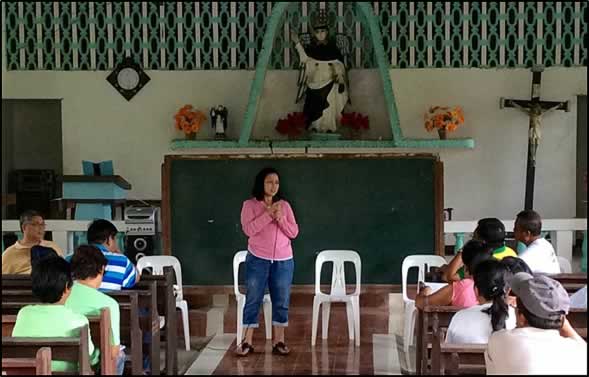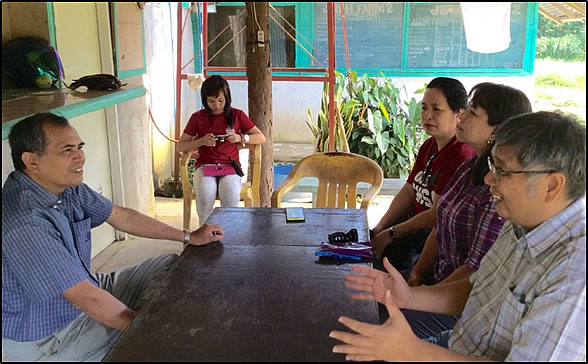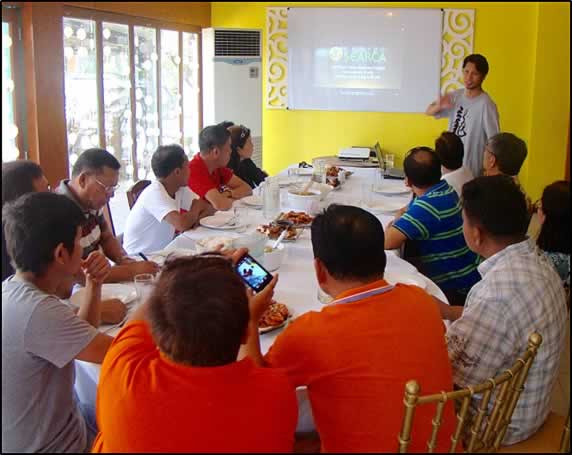 Spearheaded by the Research and Development Department (RDD) of SEARCA, the piloting project aims to harvest SEARCA’s 40 year-experience on ARD and bring this to bear upon the lives of the rural poor and vulnerable sectors in the region, as well as enhance the capacity of communities and partner institutions in effective agricultural systems that demonstrate increased benefit for the poor and vulnerable groups through integrated ground-level intervention. Guided by the defining elements of ISARD, under SEARCA’s 10th Five-Year-Plan, which are social inclusion and environmental sustainability, the project design is based on participatory approach to project planning and management, ecosystems and landscape approach, and systems oriented inter- and trans-disciplinary approach to research and capacity building.
Spearheaded by the Research and Development Department (RDD) of SEARCA, the piloting project aims to harvest SEARCA’s 40 year-experience on ARD and bring this to bear upon the lives of the rural poor and vulnerable sectors in the region, as well as enhance the capacity of communities and partner institutions in effective agricultural systems that demonstrate increased benefit for the poor and vulnerable groups through integrated ground-level intervention. Guided by the defining elements of ISARD, under SEARCA’s 10th Five-Year-Plan, which are social inclusion and environmental sustainability, the project design is based on participatory approach to project planning and management, ecosystems and landscape approach, and systems oriented inter- and trans-disciplinary approach to research and capacity building.
The aim of the scoping mission is to identify potential  agro-ecosystems-based project sites and local partners (state universities and colleges and local government units) in the Philippines, based on a SEARCA-developed general criteria for an ISARD-compliant agricultural systems model, and another set of criteria for selecting the implementing institutions.
agro-ecosystems-based project sites and local partners (state universities and colleges and local government units) in the Philippines, based on a SEARCA-developed general criteria for an ISARD-compliant agricultural systems model, and another set of criteria for selecting the implementing institutions.
The first leg of the scoping mission started in Davao Oriental, where the SEARCA team held exploratory talks with the Davao Oriental State College of Science and Technology (DOSCST) president and the heads of the Extension and Research offices. The possibility of collaborating with DOSCST as partner-implementer was the main agenda. An exploratory meeting was also held in the municipality of Boston with government officials and heads of relevant offices, and the feasibility and appropriateness of the area as a piloting site was discussed. In Leyte, the SEARCA team was met by the Visayas State University (VSU) president and Research and Extension staff, and exploratory meetings were held in the municipalities of Inopacan, Matalom, and Jaro. Communal farms, upland farming experimental sites, and trading centers were also visited. In Aklan, the SEARCA team was assisted by Aklan State University (ASU) officials and, together with LGU technicians, visited coastal resource management and eco-tourism sites in the coastal municipality of New Washington, as well as rice-based farmers’ cooperatives in the upland farms of Malinao town.
 For the second leg, the SEARCA team started with a visit to the Occidental Mindoro State College (OMSC) in the municipality of San Jose, then discussed the potential project with local officials of the municipality of Sablayan. Site validation was conducted in the OMSC-assisted upland agriculture project for indigenous communities in the province. The SEARCA team then conducted the mission in the province of Camarines Norte, wherein the Camarines Norte State College (CNSC) assisted in visiting farmer leaders and cooperatives in the municipalities of Labo, Vinzons, and Basud. To conclude the scoping mission, the team will visit selected municipalities in the province of Laguna, which were identified as highly vulnerable areas to climate impacts that affect their production and marketing activities.
For the second leg, the SEARCA team started with a visit to the Occidental Mindoro State College (OMSC) in the municipality of San Jose, then discussed the potential project with local officials of the municipality of Sablayan. Site validation was conducted in the OMSC-assisted upland agriculture project for indigenous communities in the province. The SEARCA team then conducted the mission in the province of Camarines Norte, wherein the Camarines Norte State College (CNSC) assisted in visiting farmer leaders and cooperatives in the municipalities of Labo, Vinzons, and Basud. To conclude the scoping mission, the team will visit selected municipalities in the province of Laguna, which were identified as highly vulnerable areas to climate impacts that affect their production and marketing activities.
The SEARCA scoping mission team was composed of Dr. Bessie M. Burgos and Mr. Henry M. Custodio, Acting Program Head and Program Specialist, respectively, of SEARCA RDD, and Professor Rolando T. Bello of the University of the Philippines Los Baños (UPLB), who also serves as the overall coordinator of the Piloting Project. (Henry M. Custodio)